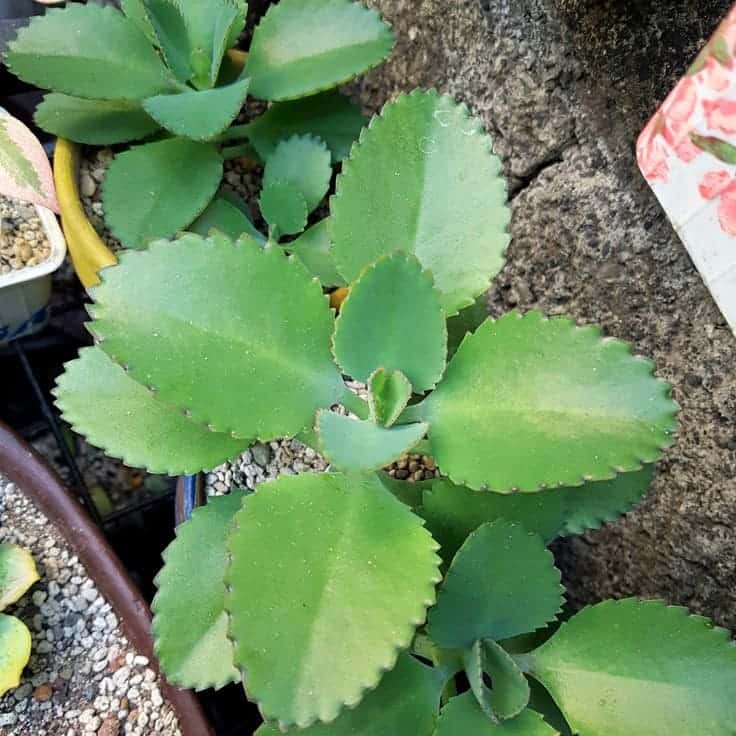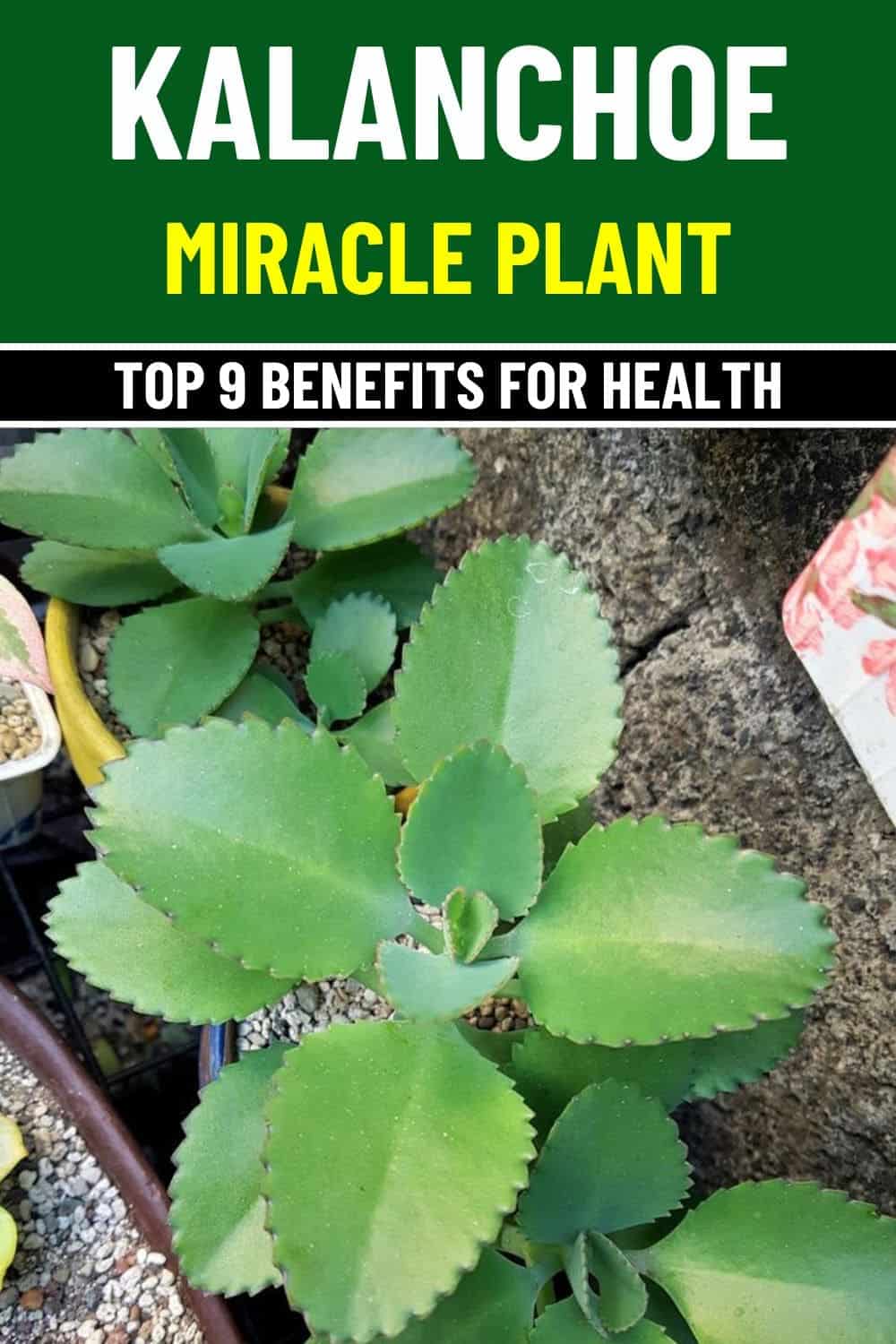Kalanchoe, often referred to as the “life plant” or “miracle plant,” may not be as well-known as some other medicinal herbs, but it has a long history of use for its impressive health benefits.
This succulent plant, with its thick, fleshy leaves and vibrant flowers, is native to tropical and subtropical regions, and has been used in traditional medicine for centuries.
Whether you’re looking to soothe a skin issue, relieve inflammation, or support digestion, Kalanchoe might just be the natural remedy you’ve been searching for.
#1. Anti-inflammatory Properties
Whether you’re dealing with arthritis, muscle pain, or general inflammation, Kalanchoe can help soothe swelling and discomfort.
The plant contains compounds like flavonoids and tannins, which have been shown to reduce inflammation in the body.

#2. Pain Relief and Analgesic Effects
Traditionally, people have used Kalanchoe to help with headaches, minor injuries, and muscle pain.
The compounds in Kalanchoe work together to reduce pain and swelling, providing a natural remedy for those who prefer an alternative to over-the-counter pain medications.

#3. Wound Healing and Skin Health
Kalanchoe is often used to promote faster healing of wounds, burns, and skin irritations.
Its antibacterial and anti-inflammatory properties make it effective in preventing infections and supporting the skin’s natural healing process.
Whether you have a small cut, a burn, or even an insect bite, Kalanchoe can help speed up the healing process and soothe the area.

#4. Antioxidant Effects
Oxidative stress is linked to aging and the development of various chronic diseases, including heart disease and cancer.
By neutralizing these free radicals, Kalanchoe can help protect your cells and support your overall health.
#5. Digestive Health
Kalanchoe has been used to aid digestion and relieve common digestive issues like bloating, indigestion, and heartburn.
It is believed to have mild antacid properties and can help soothe the stomach lining, making it a natural remedy for digestive discomfort.

#6. Diuretic Effects
Some species of Kalanchoe, particularly Kalanchoe pinnata, are known for their mild diuretic effects.
This means that the plant can help increase urine production, which can aid in detoxification and support kidney function.
#7. Immune System Support
The antioxidants and other bioactive compounds in the plant support the body’s ability to fight off infections.
The plant’s antibacterial and antiviral effects make it useful for strengthening immune responses, reducing the risk of common illnesses, and promoting faster recovery when you’re sick.

#8. Antimicrobial Effects
The antibacterial, antifungal, and antiviral effects of Kalanchoe help combat harmful microorganisms that can cause skin infections, respiratory problems, and other health issues.
This makes Kalanchoe a valuable plant for treating conditions like colds, coughs, and even some types of skin infections.

#9. Anti-cancer Potential
Certain compounds found in Kalanchoe have been shown to inhibit the growth of cancer cells in laboratory studies.
Though these results are promising, more clinical research is necessary to fully understand how Kalanchoe can play a role in cancer treatment.
How to Use Kalanchoe Safely
Here’s how you can incorporate this amazing plant into your daily routine:
- Topical applications: For wounds, burns, or skin irritations, you can crush a few fresh Kalanchoe leaves and apply the juice directly to the affected area.
- Kalanchoe tea: You steep dried Kalanchoe leaves in hot water to make a soothing herbal tea. Drinking this tea may help with digestion, reduce inflammation, and promote overall well-being.
- Kalanchoe extracts and oils: Kalanchoe extracts or oils can be used for topical application or incorporated into homemade beauty products like lotions and creams.
Caution and Precautions
You should dilute Kalanchoe extract or crushed leaves with a carrier oil, such as coconut or olive oil, to avoid irritation. If drinking Kalanchoe tea, you start with one cup per day.
Additionally, some individuals may experience allergic reactions or skin irritation from topical applications of Kalanchoe, so always perform a patch test before using it more widely.
Disclaimer
This article is for informational purposes only and should not be used as a substitute for professional medical advice, diagnosis, or treatment.
Always consult with your healthcare provider before starting any new remedy, especially if you are pregnant, breastfeeding, or taking medications.







